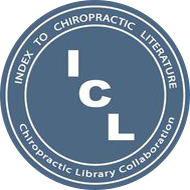| OBJECTIVE: This study determined the degree of interexaminer reliability using 2 experienced clinicians performing 3 palpation procedures over the lumbar facet joints and sacroiliac joints. METHODS: The sample consisted of 39 patients with low back pain who had a recent history of low back pain. Two doctors of chiropractic independently examined each of these patients in the prone position with 3 different procedures:
(1) springing palpation for pain provocation,
(2) springing palpation for segmental mobility testing, and
(3) the prone instability test. The doctors were blinded to each other's findings and the patient's clinical status, and performed the examinations on the same day. Standard and adjusted kappa values were calculated for each test. RESULTS: The kappa values for palpation of segmental motion restriction were poor (range, -.20 to .17) and in many cases less than chance observation (negative kappa values). The prone instability test showed reasonable reliability (kappa = .54), and palpation for segmental pain provocation also showed fair to good reliability (kappa range, .21 to .73). CONCLUSIONS: Palpation methods that are used to provoke pain responses are more reliable than palpation methods in which the clinician purports to find segmental motion restriction. The prone instability test shows good reliability. This abstract is reproduced with the permission of the publisher; full text by subscription.
|
